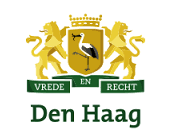
Keti Koti Monologues
Keti Koti is a celebration of the day that slavery ended in the Dutch colonies overseas: Surinam and the (former) Netherlands Antilles. On July 1st 1863 slavery was officially abolished in the colonies. Surinamese and Antillian communities honour the 1st of july to reflect on the past and the way that colonial systems and thinking still effect the reality of many people of colour today. Keti Koti is the Surinamese name for this commemoration day. It literally means: the chains are broken. In the Dutch Antilles this day is known as Emancipation Day, or Kadena Kibrá which means the same as Keti Koti.
To commemorate the abolition of slavery in areas colonised by the Netherlands, STET is organising the Keti Koti Monologues, a programme of short performances that reflect on the practices of slavery and its legacy. With the monologues STET takes part in a movement in which cultural institutions (theaters, museums) throughout the country present shows and expositions to reflect on the past. In this way art and culture contribute to the acknowledgment of the – gruesome – stories that have been hidden for ages, and play their part towards achieving a world of acceptance, equality and justice.
Performer line up:
Ritzah Statia – Kibra Silensio 17 & 18 June, 1 July
How does the new young Caribbean generation deal with difficult and traumatic experiences? What are the ‘confidential files’ they keep in their brains? Why do they suppress certain experiences?
Growing up in a community that sometimes has a ‘because I say so’ and ‘suck it up’ mentality. What is the effect of this later in life? Kibra Silensio (‘break the silence’) is a theatrical and musical quest by choreographer Ritzah Statia for the experiences of Caribbean youngsters.
Foto credits voorstelling: Kéhmor Statia
Foto credits portret: Thijs Huizer
Daniëlle Zawadi 17 June & 1 July
“I want share a story that is about ‘the result of’. To be the result of a second generation child. The unspoken sacrifices of the war in DR Congo. And how Keti Koti is a past but also a future, from my perspective”
Daniëlle Zawadi writes prose and performs with spoken word. Her stories are mostly about what it means to be young in the Netherlands as someone of the second generation: born in the Democratic Republic of Congo but raised in the Netherlands.
Rosa Weekers 17 & 18 June, 1 July
The physical form of transatlantic slavery is over. We celebrate that at Keti Koti. The chains are broken. Actress Rosa Weekers explores the mental aspects of slavery that are consciously, as well as unconsciously, still present today.
She examines whether the slavery of that time has really been completely broken or whether there are still remnants of it being passed on from generation to generation.
Maria Toko 18 June
How visible and audible are the stories of the people who are not in our history books, but are part of our history?
One of those stories is related to the Binnenhof and is about Elisabeth Samson. Who is this woman and what is her story? Artist Maria Toko invites the public to get to know Elisabeth Samson by sharing short fragments from her life in a monologue.¹
¹Dr. Valika Smeulders conducted research into The Hague and the history of slavery and she focused on stories that took place in the buildings that we also walk past today.
Historians:
17 June – Karwan Fatah-Black
Karwan Fatah-Black is an expert in Dutch Colonial History and a professor at Leiden University. He will talk about the celebration and commemoration of Keti Koti over the years, how this is becoming a national celebration and what new questions this raises about the meaning of this recognition.
18 June – Nancy Jouwe
Nancy Jouwe is a cultural historian, researcher, lecturer and public speaker. She studied Gender Studies and Cultural History in Utrecht and York and has published ten book titles and several articles on colonial history and postcolonial cultural and social movements.
1 July – Marisa Monsanto
Marisa Monsanto is chair of the Foundation Theater voor Keti Koti. She will give an insight into the origins of Keti Koti and what place it holds in today’s Netherlands and today’s theatre. She will also share poetry from writers from both Surinam and Curacao.
Thanks to:

Municipality of The Hague

Gravin van Bylandt

Fonds Podium Kunsten

Tolken UWV

Stichting Sint Nicolaas Gasthuis

